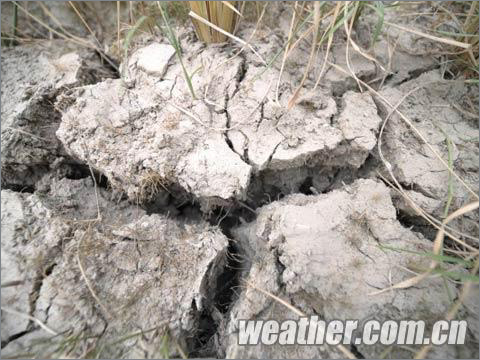Gov't releases plan to prevent drought
 0 Comment(s)
0 Comment(s) Print
Print E-mail
Xinhua, November 3, 2011
E-mail
Xinhua, November 3, 2011
The State Council approved a national plan on Wednesday listing steps to be taken during the next decade to prevent droughts.
|
|
|
A dry farmland in Guidzhou Province. The State Council approved a national plan on Nove. 2 listing steps to be taken during the next decade to prevent droughts. |
Among the tasks called for by the plan are the completion of projects meant to ensure there is a steady supply of drinking water and to make drought-hit areas arable.
The plan was approved at an executive meeting of the State Council led by Premier Wen Jiabao.
A statement released after the meeting said that climate change and the increasing demand for water have caused droughts to occur with greater severity and frequency in China.
It said conservation is the best way to cope with droughts.
More than 60 percent of China's counties are susceptible to droughts, and residents of 110 out of the 658 cities in the country have suffered from water shortages, the State Council said.
According to the plan, the government will seek to "significantly improve" the supply of drinking water in drought-hit counties by 2015. By 2020, the existence of safe supplies of drinking and irrigation water is to be largely ensured.
The government will also construct more water-reserve projects in rural areas, towns and cities, as well as establish a national drought-monitoring network that will help policymakers decide how they should best respond to future droughts.
"Droughts cause more grain loss in the country than any other type of natural disaster," said Li Maosong, director of the Chinese Academy of Agricultural Sciences' agriculture information office.About 47 percent of the arable land in the country has been hit by drought, he said.
Even so, the country's grain output is expected to jump to a record high of more than 550 million tons this year, marking the eighth consecutive year for increased production, statistics from the Ministry of Agriculture show.
Despite that reason for optimism, Li warned that future grain crops may be endangered if severe droughts become increasingly common.
"For China, reducing the grain losses caused by natural disasters, especially by drought, is as important as increasing output," he said.






